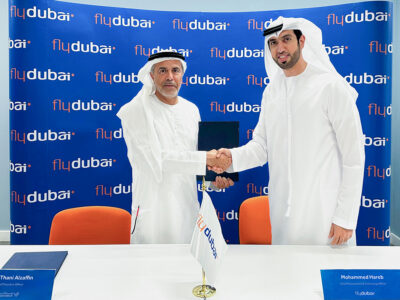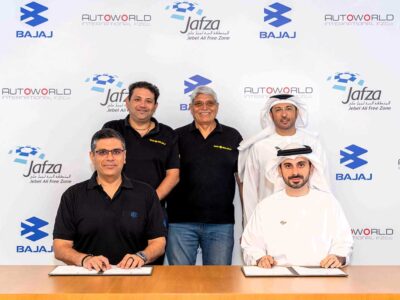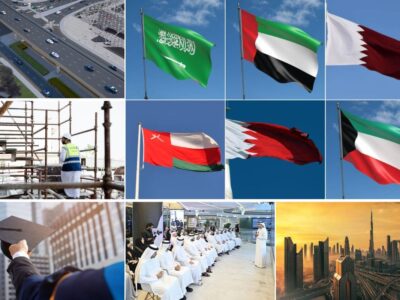An established start-up is something of a contradiction in terms – but it was the situation the newly-formed Madar Holding found itself in when it began operations in 2006. A fully-owned subsidiary of Saudi Arabia’s Al Fozan Group, Madar Holding covers all of Al Fozan’s operations outside KSA, and covers a number of different industries, including manufacturing, logistics and real estate.
Selim Edde, corporate IT manager for Madar Holding, explains how the company came into being: “Initially the approach was that whatever offices Al Fozan opened outside Saudi Arabia was considered a branch office of the group in KSA. It was a very basic setup, with small servers installed in each branch – that was the approach.
“In the beginning of 2006, the idea of Madar Holding was established. Beginning of 2006, Madar Holding began operation – it started gathering its staff – managers, directors – and they built the holding company, which manages all the Al-Fozan business outside Saudi Arabia,” says Edde.
The go-live date was so tight that we had to work continuously for two weeks – our guys and Raqmiyat’s guys were working almost 24 hours a day.
The original regional offices of Al Fozan – in the UAE and Qatar – gave Madar Holding its initial start, including a minimal IT infrastructure consisting of a few servers. Edde says the next step was to put together the new firm’s IT strategy, building on this existing base.
“I joined the company in May 2006 when it was starting up – Madar Holding had no IT operations, but still it had had operations in place for five or six months in countries such as the UAE, Qatar, Sudan and Jordan. With such operations across the region, the best option was to go for a datacentre model, to host all IT services,” he says.
One of the critical choices – of ERP system – had already been made for Madar Holding. It continues to use the Orion system implemented by Al Fozan, which was already licenced and installed. Edde explains that, by keeping the same ERP system as the parent company, both firms will be at the same pace of development.
“Orion was inherited from Al Fozan, along with licences, so it was a quicker launch for us – we didn’t have to go through a new ERP installation, it was there already, so we took advantage of that. Eventually we’re going to have to change that – by the end of 2008, we’re going to have to look at other solutions,” Edde says.
“This will be a change across both companies – there’s a process at the moment looking at products such as Oracle E-Business Suite and SAP. If we’d started now with a new ERP solution, Al Fozan would not have been ready to change with us – we’d rather change together when the time is right for both.”
Along with Orion, Madar Holding also inherited a strong preference for HP hardware, thanks to past experience with the vendor, according to Edde. This meant the critical choice for Madar Holding’s team was which implementation partner to use for the US$400,000 project.
Edde says: “We started negotiating with several suppliers – the reason we went with Raqmiyat is that they provided the complete solution from A to Z. There was no other provider we found who could give us all the products we required, right from software to hardware.
“We looked at three different implementation partners. Aside from the price, which was a winner for Raqmiyat, the main requirement was being able to provide an end-to-end solution without the need to go through any other suppliers in the market. Third was the qualifications of the engineers. Plus, being a well-established company also gave Raqmiyat an advantage.”
Madar Holding had no IT operations, but still it had had operations in place for five or six months in countries such as the UAE, Qatar, Sudan and Jordan.
By the end of 2006, Edde and his team had made all the major decisions covering Madar Holding’s IT systems. The company would run its ERP system through Citrix, along with a Microsoft Exchange server and CA management and security tools. The branch offices were to access the ERP system using Citrix, while connecting to the Exchange server remotely.
All of this would run on HP servers, which would be hosted by Dubai-based E-Hosting Data Fort (EHDF), part of Dubai Holding-owned Tecom. Edde says Madar Holding’s team did look at the option of building a datacentre, but decided hosting offered too many advantages to pass up.
“We did consider – briefly – hosting our own datacentre, but the added value of hosting with EHDF was basically the connectivity it provides, and the reliability of its connection is high enough that, if we had installed our own connection to the same standard, with the same bandwidth and reliability, the cost would have been three times higher for us,” reveals Edde.
With all of the planning completed, the detailed design and implementation of the systems was extremely fast, according to Edde: “We started designing the solution in December 2006 – by the beginning of January the implementation started. It took us around a month to get everything up and running, and start operations.
“Everything was already set from the design side – the overall direction was set already, and the negotiations on the datacentre hosting had already been completed, so all we were waiting for was the supplier to be ready. We just had to place the order, receive the products, and install them,” he says.
The implementation itself was done to a very tight timescale, as Edde explains: “The go-live date was so tight that we had to work continuously for two weeks – our guys and Raqmiyat’s guys were working almost 24 hours a day at one point to meet the due date.”
Having a more-or-less greenfield project meant the initial deployment of the company’s IT systems was fairly smooth, if pushed for time. Edde says the biggest challenge he faced was connectivity issues in some of the remote offices – especially Sudan.
“The connectivity was a bit of an issue outside the datacentre, because of the poor services in some countries – this was a challenge as well. But we managed to resolve it by using redundant connections in our sites,” he explains.
The coming months and years will see continuous expansion for Madar Holding – Edde says the company expects to see its current headcount of around 250 almost double by the end of 2008. At this point both Madar Holding and parent company Al Fozan are likely to look at a new ERP system – but until then, the main task will be expansion of the firm’s current regional operations.
“There are plans for Oman, Syria and Kuwait – Syria and Oman are on the way, we’re providing services there through other branches, but hopefully by 2008 we will have offices in all three countries,” says Edde.
Servers:HP
Routers/firewalls:Cisco
Security:CA
ERP:Orion
Remote connectivity:Citrix
E-mail:MS Exchange
Hosting:E-Hosting Data Fort







